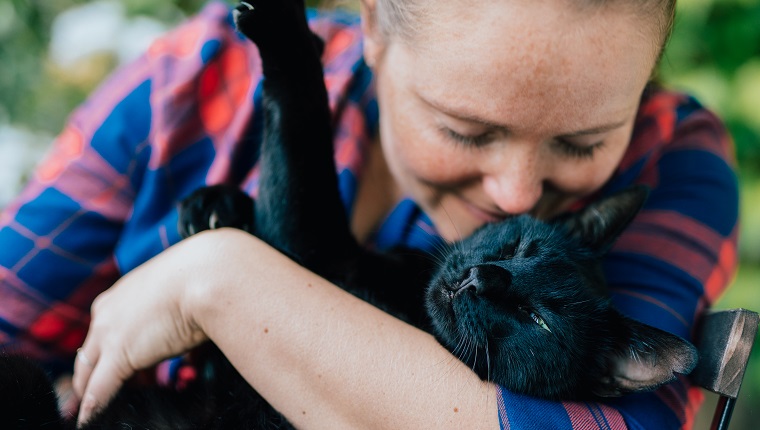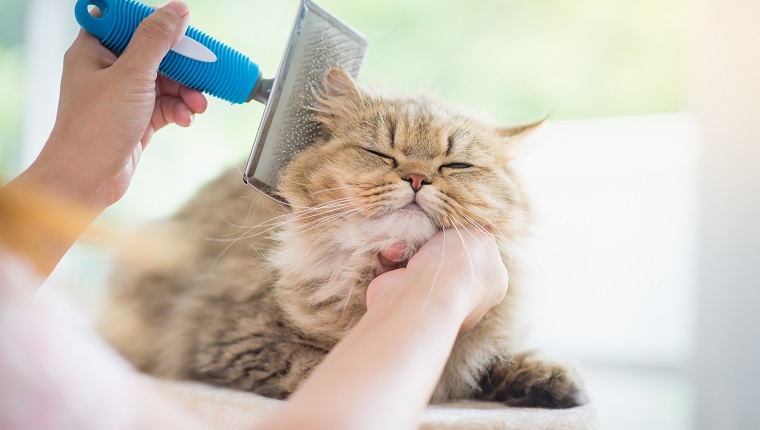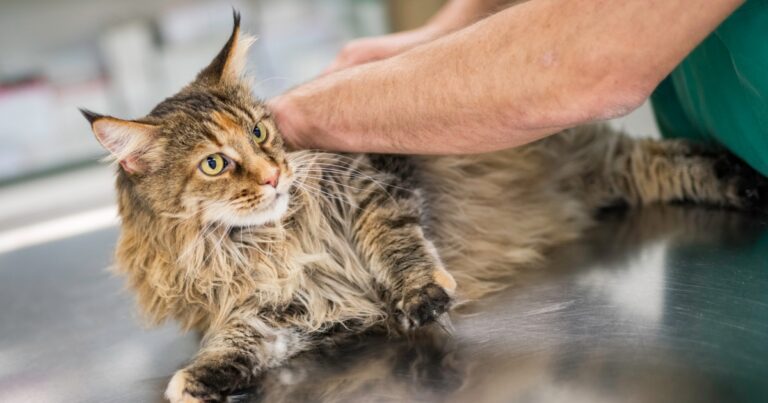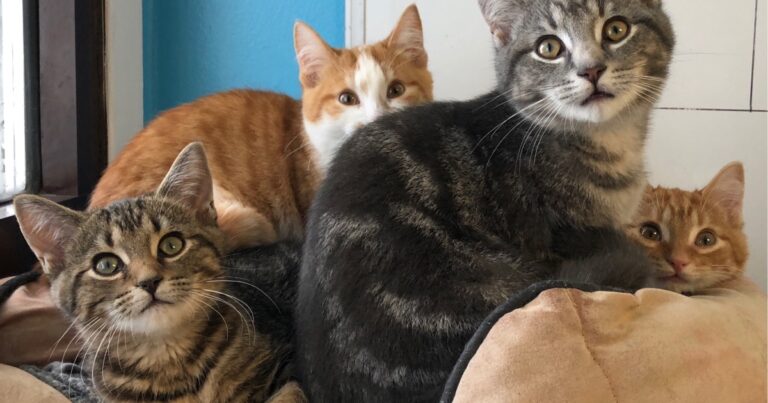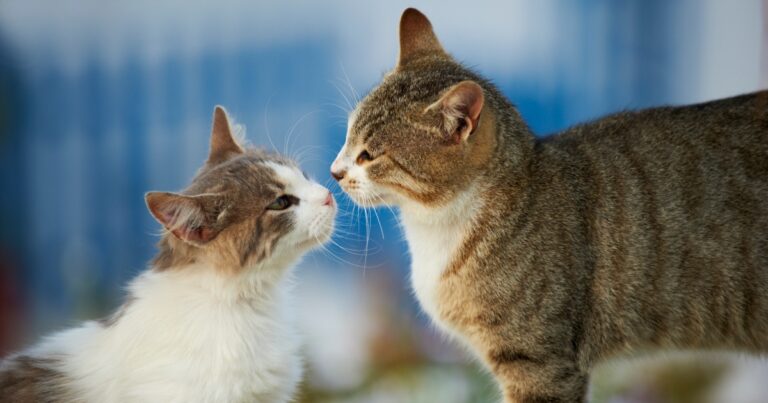❇︎Affiliate Statement: The services and products that I may link in this article are ones that I use myself and am proud to recommend. If you follow one of my links please be aware that I will receive a small commission from Amazon or other vendors. I’d also like to say a big Thank You for your trust if you do.
Having a “social and outgoing cat” is easier the earlier that you start.
Some of my shyest babies are the ones who’d already been spooked or abused as little ones on the street and it’s sometimes hard to overcome (but completely possible with patience and re-conditioning).
Raising a tame and sociable cat requires a combination of factors, starting from the time the kitten is in the womb. This article will explore the various elements that contribute to a cat’s temperament and provide tips on how to raise a social and outgoing cat.
Temperament Starts in the Womb:
It may come as a surprise, but a kitten’s personality traits begin to develop while they are still in the mother’s womb. According to veterinarian Dr. Sophia Yin, if a cat is malnourished during pregnancy, her kittens may suffer from brain defects and display abnormal levels of fear and aggression.
To ensure a healthy temperament, it is essential to feed the mother cat a nutritious, protein-rich diet. This will promote overall health and enhance the well-being of the kittens.
Contact with the Mother Cat:
During the first four weeks of a kitten’s life, it is crucial to provide them with substantial social contact with their mother. This contact helps shape their behavior and social skills. Kittens that lack this interaction may develop fear and distrust towards humans and other cats.
However, if a kitten has been abandoned by its mother, bottle-feeding can counteract the negative effects. Bottle-fed kittens often become more comfortable around people, compensating for the absence of maternal contact.
The Influence of the Mother’s Personality:
The personality of the mother cat also plays a significant role in the temperament of her kittens. Kittens learn behaviors from their mothers, so if a mother cat displays fear or anxiety around people, her offspring are likely to develop similar traits.
To raise a social and outgoing cat, it is vital to ensure that the mother cat has a positive and friendly temperament. This will greatly influence the behavior and disposition of her kittens.
Socializing the Kitten:
To encourage a kitten to be outgoing and friendly towards humans, it is crucial to introduce them to people from a young age. Veterinarian Dr. Yin suggests that handling a kitten for as little as five minutes a day, from birth to 45 days old, can have a significant impact on their sociability.
Additionally, exposing the kitten to various experiences, such as meeting different people and associating them with positive experiences, will contribute to their social development. By giving the kitten a variety of experiences, such as hearing the doorbell and receiving a treat, they will learn to associate new people with positive things, increasing their chances of being social as adults.
A Final Word on Outgoing Cats:
While it is impossible to guarantee that any kitten will grow up to be an outgoing and people-loving cat, following these tips can greatly increase the likelihood. Starting from the time the kitten is in the womb, providing proper nutrition, social contact, and positive experiences will contribute to their overall temperament.
If having an outgoing cat is of utmost importance, another option is to consider adopting a grown adult cat from a local shelter. Visiting the shelter allows potential owners to assess the cat’s personality and find one that aligns with their desires. “Interview” lots of cats and you’ll be surprised how just the right one will charm you.
FAQs:
1. How can the mother’s personality influence a kitten’s temperament?
The mother cat’s behavior serves as a model for her kittens. If she displays fear or anxiety around people, her kittens are likely to learn and imitate these behaviors.
2. Can socializing a kitten from a young age make a difference in their sociability?
Yes, handling a kitten for as little as five minutes a day, from birth to 45 days old, can significantly impact their social skills. Exposing them to different experiences and associating new people with positive things can promote their sociability.
3. Is it possible to guarantee that a kitten will grow up to be outgoing and people-loving?
No, it is impossible to guarantee a specific temperament in a cat. However, by following the tips mentioned in this article, the chances of raising a social and outgoing cat are greatly increased.
4. What if I prefer an outgoing cat but don’t want to raise a kitten?
If having an outgoing cat is a priority, consider adopting a grown adult cat from a local shelter. Visiting the shelter allows potential owners to assess the cat’s personality and find one that suits their preferences.

Becca The Crazy Cats Lady is an experienced and knoweldgeable cat owner with years of experience caring for a multi-cat household. She curates, writes and shares cat content at https://CrazyCatsLady.com.

